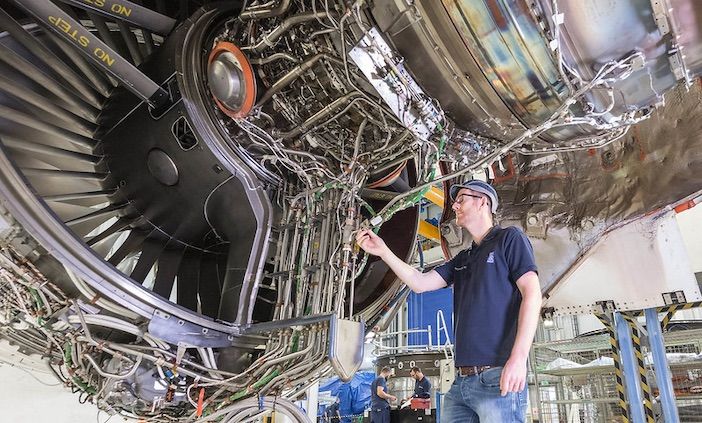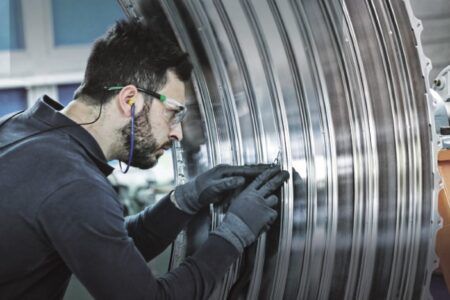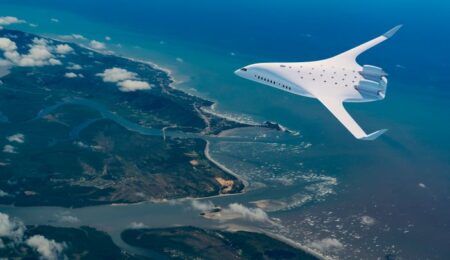Rolls-Royce is to test biofuel for the first time in a ground test program for its next-generation engine technology.
The tests aim to confirm that unblended sustainable aviation fuel (SAF) will work in its next generation of engines as a 100% drop-in fuel and lay the groundwork to certify 100% SAF to work in its engines. SAF is currently certified for blends of up to 50% with conventional jet fuel on all current Rolls-Royce engines
The SAF being used in the tests was produced by low-carbon fuel supplier World Energy in Paramount, California, sourced by Shell Aviation and delivered by SkyNRG. The unblended fuel could reduce net carbon dioxide lifecycle emissions by more than 75% compared to conventional jet fuel, with the possibility of further reductions in years to come, said Rolls-Royce.
The testing will start this year in Derby, UK and will involve a Trent engine incorporating Rolls-Royce’s ALECSys (Advanced Low Emissions Combustion System) lean-burn technology.
ALECSys is part of the UltraFan next generation engine demonstrator programme, which offers a 25% fuel saving over the first generation of Trent engines.
Paul Stein, Rolls-Royce’s chief technology officer said, “Aviation is a tremendous force for good, keeping the world connected, but we have to do that sustainably. These tests aim to show that we can deliver real emissions reductions.
“If SAF production can be scaled up – and aviation needs 500 million tonnes a year by 2050 – we can make a huge contribution for our planet.”
In addition to supplying the SAF with SkyNRG, Shell Aviation is also providing Rolls-Royce with AeroShell lubricants for the ALECSys engine test programme.
Anna Mascolo, President, Shell Aviation, commented: “For over 100 years, Rolls-Royce and Shell have worked together to drive aviation’s progress. This collaboration brings us one step closer to decarbonising Aviation. As well as the SAF, Shell Aviation will provide offsets using nature-based solutions to make the test net zero emissions, reinforcing how multiple measures are essential if aviation is to achieve net zero carbon dioxide emissions.”
The ALECSys programme is supported by the European Union via Clean Sky and in the UK by the Aerospace Technology Institute and Innovate UK; the 100% SAF testing programme is additionally supported by ATI, iUK and Gulf Aviation.





